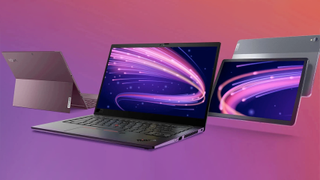Analysts expect 15% price hike for AI PCs — 60% of PCs will have local AI capabilities by 2027
Not surprising as all chipmakers have begun integrating NPU in CPUs and GPUs

Analysis group Canalys published a report forecasting the future sales and deployment of AI-enabled PCs in a few years. Based on the fact that in 2024, 19% of PCs are AI-capable and already shipped worldwide, the group estimates a 60% growth in shipments by 2027 with its increased presence for commercial purposes.
The adoption will have a widespread effect on gaming, business, and consumer-level markets, paving the way for neural chip-embedded roadmaps from respective leading chipmakers. As many would expect, PCs supporting AI on hardware levels will also command a price hike between 10% and 15%. Since Windows 11 24H2 already has CPU and RAM requirements embedded in its coding, it will likely increase the demand for larger amounts of fast RAM, potentially increasing its pricing.
All major chipmakers are working to incorporate neural processing units (NPUs) across their processor families. It is only a matter of time before drivers, APIs, and frameworks are upgraded to take advantage of these developments, along with B2B and B2C software makers adopting it. Both Counterpoint and IDC predicted positive PC market growth, partly encouraged by this new integration.
Apple, Qualcomm, Intel, and AMD are expected to dominate the NPU market, fulfilling the need to enable AI-based apps as it grows with time. Naturally, hardware implementation will go hand-in-hand with software capabilities. Companies such as OpenAI, Microsoft, Google, and others have heavily invested in this for consumer-level, gaming, military, and commercial applications. It would take time for most users to see AI, especially with its integration into operating systems, as an important tool, given that most of the common applications are now generative AI.


Dedicated AI hardware plays a crucial role in Qualcomm's upcoming Snapdragon X series CPUs, which are planned for notebooks in multiple price segments. Windows 11's 24H2 will have AI-driven features built into native programs like File Explorer. Unsurprisingly, Apple is also pushing towards having AI-capable CPUs in its notebooks and desktop systems, given that leading software companies like Adobe, Audacity, and others already have AI-infused functions. Hence, imagining games using LLM to drive in-game characters and environments to create an immersive experience is not farfetched.
Challenges with Ethics and Privacy
The enthusiasm for this new development shouldn't ignore certain privacy challenges and the ethical use of AI. Generative AI is heavily criticized, given that it is known to use copyright-protected images and present offensive content. Therefore, respective companies and governments must safeguard users' interests while actively developing in the right direction.
There have already been reports that ex-Amazon executives were told to ignore copyright law to get ahead in the AI rat race. It's better to avoid such problems rather than fix them later, as there is a potential danger of not being able to fix these challenges in the future. There's also a concern regarding AI hardware's power consumption, which is already predicted to consume a quarter of America's electricity by 2030.
Stay On the Cutting Edge: Get the Tom's Hardware Newsletter
Get Tom's Hardware's best news and in-depth reviews, straight to your inbox.
It's also vital that AI implementations don't hinder the UI experience. We often see instances where AI integration into existing products negatively impacts response or looks to intrude into your workspace.
-
Neilbob Wow! It's almost as if companies have come to the realisation that they can exploit the AI (Artificial Augmentation) hype to squeeze more profits out of regular people.Reply
I'm still using Artificial Augmentation to describe it - when my PC gets off its backside and makes me a cuppa, then I might change my tune. In the meantime, I'm probably going to need some pretty major dental work; stories like these tend to make me grind my teeth. -
Amdlova microsoft sybian will drove your prices ass imposible in next few year :) Why not put a IA chip on nvme?Reply -
JamesJones44 I'm not convinced the average consumer is going to care about this. Creative professionals/developers for sure, but that's a much smaller percentage of the overall PC sales. As "AI" stands today I don't see where the value add is going to come from for the consumer vs just using a cloud service.Reply -
usertests Reply
Yeah, this sounds like BS. Every mobile APU will get an NPU, desktop CPUs not long after potentially, and most consumers won't notice. Almost every system with a discrete GPU can also act as an "AI PC".JamesJones44 said:I'm not convinced the average consumer is going to care about this. Creative professionals/developers for sure, but that's a much smaller percentage of the overall PC sales. As "AI" stands today I don't see where the value add is going to come from for the consumer vs just using a cloud service.
There is value in doing things locally, as long as it's not eating up an inordinate amount of resources in relation to the value of the task (e.g. RAM, storage needed for a relatively weak LLM to run locally). -
Colif i find that hard to believe, its only 3 years. They expect everyone to update their PC in that time? Sure, maybe in businesses but consumers don't update that fast. Most people in fact.Reply
By 2027 I might have a new PC, I haven't really thought about it. I expect by then every cpu will have an npu, whether its useful or not.
Most Popular


